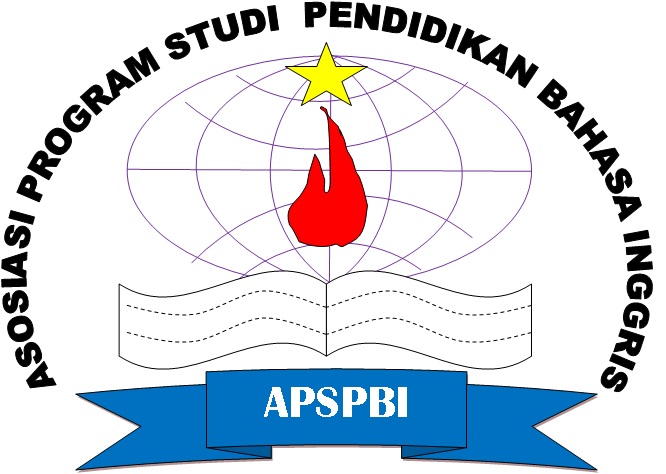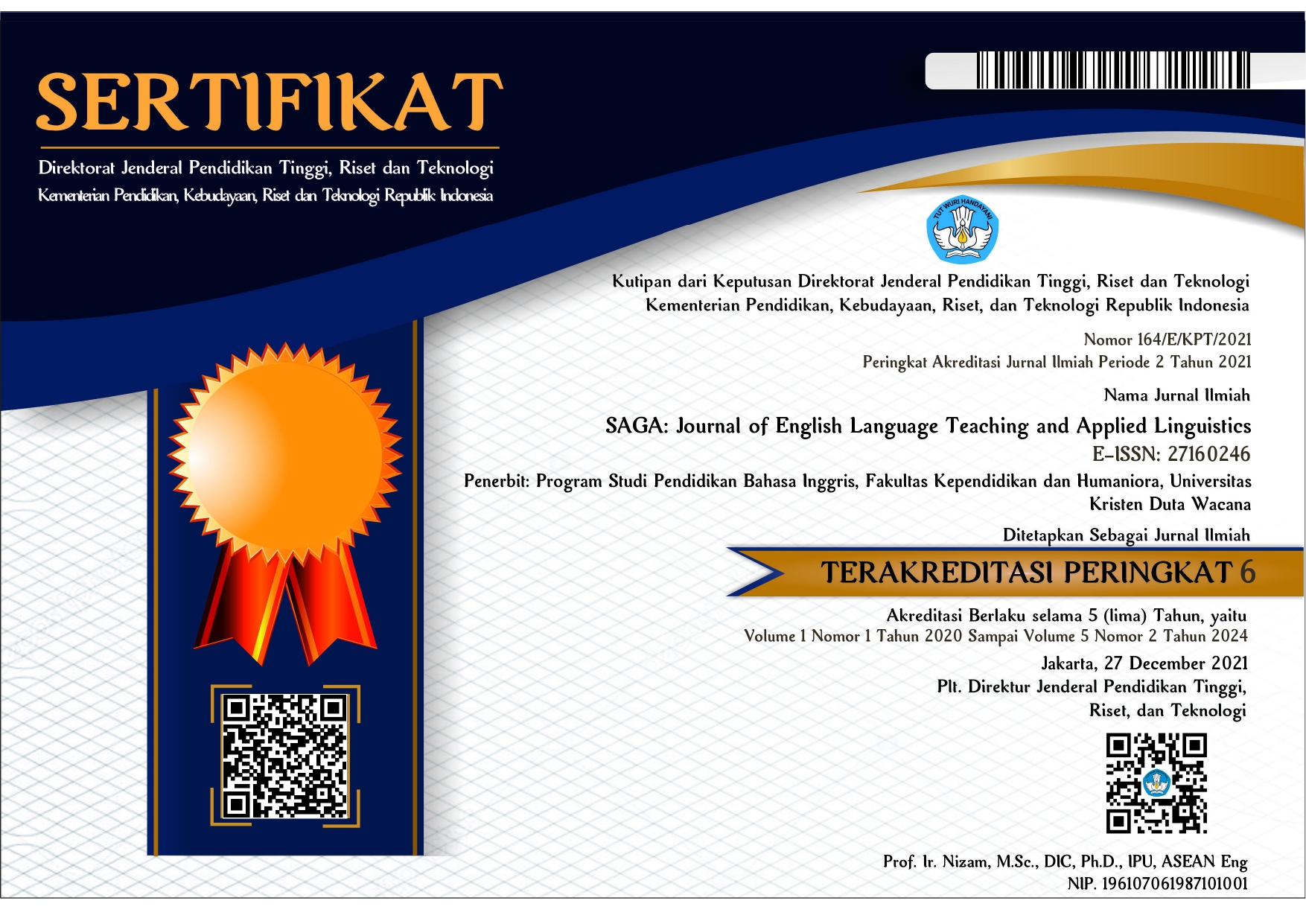The Role of Autonomy-Supportive Teaching Method in EFL Learning Contexts Worldwide
DOI:
https://doi.org/10.21460/saga.2023.42.140Keywords:
Autonomy-supportive teaching method, EFL learners’ autonomy, library studyAbstract
One of the ultimate objectivities of education is to produce proficient, confident, and self-reliant learners possessing life-long learning characters. To comply with this educational aim, it is critically indispensable for worldwide EFL teachers to design a wide variety of student-oriented, encouraging, and meaningful learning activities sustaining the internalization of the autonomy-supportive teaching method. This present small-scale qualitative investigation was conducted through library study approach. Twenty current autonomy-supportive teaching literatures were selected to yield new enlightenment toward globalized ELT stakeholders’ beliefs concerning the critical importance of this student-centered learning mode in modern EFL areas. Based on the in-depth library analysis, the further utilization of the autonomy-supportive teaching method is highly recommended since EFL learners have transformed into more competent and self-reliant target language learners accompanied by the intensive learning supports addressed by language teachers. Some important suggestions are suggested for the future advancement of this current qualitative study.
References
Abdulhay, H., Rahimi, A., & Samigorganroodi, G. (2016). The relationship between students’ self-regulated learning and teacher’s autonomy support. Journal of Language and Literature Education, 18, 53–68.
Ahmadi-Azad, S., Asadollahfam, H., & Zoghi, M. (2021). The Contribution of Teachers’ Interpersonal Behaviors to Learners’ Autonomous and Controlled Motivation. International Journal of Emotional Education, 13(1), 66–86.
Alrabai, F. (2021). The Influence of Autonomy-Supportive Teaching on EFL Students’ Classroom Autonomy: An Experimental Intervention. Frontiers in Psychology, 12(September). https://doi.org/10.3389/fpsyg.2021.728657
Baker, R., Ma, W., Zhao, Y., Wang, S., & Ma, Z. (2020). The Results of Implementing Zone of Proximal Development on Learning Outcomes. 13th International Conference on Educational Data Mining, Edm, 749–753. https://files.eric.ed.gov/fulltext/ED608058.pdf
Basri, F. (2020). Factors influencing learner autonomy and autonomy support in a faculty of education. Teaching in Higher Education, 0(0), 1–16. https://doi.org/10.1080/13562517.2020.1798921
Borg, S., & Alshumaimeri, Y. (2019). Language learner autonomy in a tertiary context: Teachers’ beliefs and practices. Language Teaching Research, 23(1), 9–38. https://doi.org/10.1177/1362168817725759
Chen, C. H. (2020). AR videos as scaffolding to foster students’ learning achievements and motivation in EFL learning. British Journal of Educational Technology, 51(3), 657–672. https://doi.org/10.1111/bjet.12902
Cheon, S. H., Reeve, J., & Vansteenkiste, M. (2020). When teachers learn how to provide classroom structure in an autonomy-supportive way: Benefits to teachers and their students. Teaching and Teacher Education, 90, 103004. https://doi.org/10.1016/j.tate.2019.103004
Chinpakdee, M. (2020). Developing learner autonomy in language learning: A study in the Thai EFL secondary school context.
Danli, L. (2017). Autonomy in Scaffolding as Learning in Teacher-Student Negotiation of Meaning in a University EFL Classroom. Chinese Journal of Applied Linguistics, 40(4), 410–430. https://doi.org/10.1515/cjal-2017-0024
Fadaee, E., Marzban, A., & Najafi Karimi, S. (2021). The relationship between autonomy, second language teaching styles, and personality traits: A case study of Iranian EFL teachers. Cogent Education, 8(1). https://doi.org/10.1080/2331186X.2021.1881203
Gueta, B., & Berkovich, I. (2022). The effect of autonomy-supportive climate in a second chance programme for at-risk youth on dropout risk: The mediating role of adolescents’ sense of authenticity. European Journal of Psychology of Education, 37(1), 85–100. https://doi.org/10.1007/s10212-021-00542-4
Han, K. (2021). Fostering Students’ Autonomy and Engagement in EFL Classroom Through Proximal Classroom Factors: Autonomy-Supportive Behaviors and Student-Teacher Relationships. Frontiers in Psychology, 12(October), 1–7. https://doi.org/10.3389/fpsyg.2021.767079
Isik, T., & Balcikanli, C. (2020). EFLteachers’ autonomy supportive practices for out-of-class language learning. IAFOR Journal of Education, 8(4), 63–78. https://doi.org/10.22492/ije.8.4.04
Jang, H., Reeve, J., & Halusic, M. (2016). A New Autonomy-Supportive Way of Teaching That Increases Conceptual Learning: Teaching in Students’ Preferred Ways. Journal of Experimental Education, 84(4), 686–701. https://doi.org/10.1080/00220973.2015.1083522
Karimi, M. N. (2017). Autonomy-Supportive Teaching, Willingness to Communicate in English, Motivation, and English Speaking Self-Efficacy among EFL Learners: A Structural Equation Modelling Study. Iranian Journal of Applied Linguistics (IJAL), 20(2), 113–156.
Kartal, G., & Balcikanli, C. (2019). Tracking the culture of learning and readiness for learner autonomy in a Turkish context. Teflin Journal, 30(1), 22–46. https://doi.org/10.15639/teflinjournal.v30i1/22-46
Kassem, H. M. (2018). The Impact of Student-Centered Instruction on EFL Learners’ Affect and Achievement. English Language Teaching, 12(1), 134. https://doi.org/10.5539/elt.v12n1p134
Kaur, A., Hashim, R. A., & Noman, M. (2015). Teacher autonomy support intervention as a classroom practice in a Thai school: A self-determination theory perspective. Journal for Multicultural Education, 9(1), 10–27. https://doi.org/10.1108/JME-07-2014-0033
Lamkhanter, F. (2022). Learner Autonomy: Attitudes and Practices of Moroccan University Students in English Departments. International Journal of Language and Literary Studies, 4(1), 189–207. https://doi.org/10.36892/ijlls.v4i1.811
Mercer, S., & Dörnyei, Z. (2020). Engaging language learners in contemporary classrooms. Cambridge University Press.
Moè, A., & Katz, I. (2020). Self-compassionate teachers are more autonomy supportive and structuring whereas self-derogating teachers are more controlling and chaotic: The mediating role of need satisfaction and burnout. Teaching and Teacher Education, 96. https://doi.org/10.1016/j.tate.2020.103173
Nielsen, B. M. (2019). Fostering learner autonomy in foreign language learning: justifications, Definitions, Misconceptions, and interrelated components for its realization. Hokuga Journal, 8(1), 33-52.
Nosratinia, M., Saveiy, M., & Zaker, A. (2014). EFL learners’ self-efficacy, metacognitive awareness, and use of language learning strategies: How are they associated? Theory and Practice in Language Studies, 4(5), 1080–1092. https://doi.org/10.4304/tpls.4.5.1080-1092
Oga-Baldwin, W. L. Q., Nakata, Y., Parker, P., & Ryan, R. M. (2017). Motivating young language learners: A longitudinal model of self-determined motivation in elementary school foreign language classes. Contemporary Educational Psychology, 49, 140–150. https://doi.org/10.1016/j.cedpsych.2017.01.010
Pham, L. L. N., Nguyen, H. T., & Le, V. T. K. (2021). Triggering Students’ Learning Autonomy Using the Combination of M-Learning and Gamification: a Case Study At Nguyen Tat Thanh University. Teaching English with Technology, 21(2), 66–91.
Phithakmethakun, M., & Chinokul, S. (2020). Autonomy-supportive English language instruction: An experimental study on students’ motivation in English language classrooms. LEARN Journal: Language Education and Acquisition Research Network, 13(1), 94–113.
Quint Oga-Baldwin, W. L., Ellis, M., Bury, J., Suzuki-Parker, J., & McCarty, S. (2020). TLT Interviews 20 An Interview with Donna Brinton My Share 25 Classroom ideas from Jennifer Rose. 44(3). http://jalt-publications.org/tlt
Raya, M. J., & Vieira, F. (2020). Autonomy in Language Education. In Autonomy in Language Education. https://doi.org/10.4324/9780429261336
Reeve, J., & Cheon, S. H. (2021). Autonomy-supportive teaching: Its malleability, benefits, and potential to improve educational practice. Educational Psychologist, 56(1), 54–77. https://doi.org/10.1080/00461520.2020.1862657
Ryan, R. M., & Deci, E. L. (2000). Self-determination theory. Encyclopedia of quality of life and well-being research. In American Psychologist (pp. 68–78).
Subekti, A. S. (2018). L2 Motivational Self System and L2 achievement: A study of Indonesian EAP learners. Indonesian Journal of Applied Linguistics, 8(1), 57–67. https://doi.org/10.17509/ijal.v8i1.11465
Tan, D., Diatta-Holgate, H. A., & Levesque-Bristol, C. (2021). Perceived autonomy supportive and culturally responsive environments contribute to international students’ participation and willingness to communicate. Current Psychology. https://doi.org/10.1007/s12144-021-02063-1
Wang, J. C. K., Ng, B. L. L., Liu, W. C., & Ryan, R. M. (2016). Can Being Autonomy-Supportive in Teaching Improve Students’ Self-Regulation and Performance? Building Autonomous Learners, 227–243. https://doi.org/10.1007/978-981-287-630-0_12
Wang, Y., Derakhshan, A., & Rahimpour, H. (2022). Developing resilience among Chinese and Iranian EFL teachers: A multi-dimensional cross-cultural study. Journal of Multilingual and Multicultural Development, February, 1–18. https://doi.org/10.1080/01434632.2022.2042540
Wiraningsih, P., & Santosa, M. H. (2020). Journal on English as a Foreign Language EFL teachers ’ challenges in promoting learner autonomy in the 21 st -. 10(2), 290–314.
Yilmaz, C., & Arcagok, S. (2018). An investigation into EFL teachers’ autonomy supportive behaviors in Turkish context. Journal of Education and Training Studies, 6(12), 82-92. https://doi.org/10.11114 jets.v6i12.3697
Zarrinabadi, N., Lou, N. M., & Shirzad, M. (2021). Autonomy support predicts language mindsets: Implications for developing communicative competence and willingness to communicate in EFL classrooms. Learning and Individual Differences, 86(April 2020), 101981. https://doi.org/10.1016/j.lindif.2021.101981
















